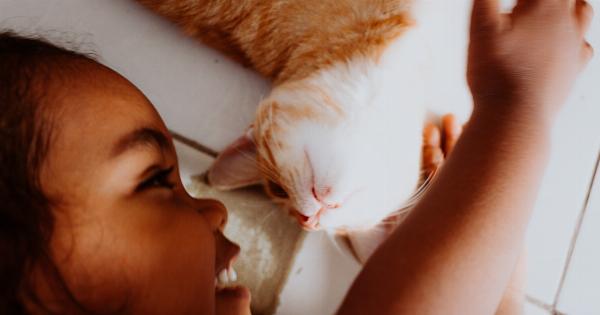Dogs, cats, and other pets are some of the most common companions that children have at their homes. They are not only a source of entertainment but also provide emotional support to children when they are feeling down or lonely.
However, when a pet dies, children often experience a significant and complex range of emotions. The loss of a pet can be devastating for a child who may not have developed the emotional and cognitive skills necessary to process their feelings about death.
This article aims to explore the impact of losing a pet on children and how parents can help their children manage their grief after the loss of a beloved pet.
Understanding a Child’s Love for Their Pet
One of the most important things to understand about the emotional impact of losing a pet on children is the depth of their love for their pet. For a child, a pet is more than just an animal.
It is a best friend, a constant companion, and a member of the family. Children often develop an emotional bond with their pets that is just as strong as the bond they have with their parents or siblings.
When a pet dies, children lose an important source of comfort and support, and it can be challenging for them to come to terms with their loss.
The Complexity of Grief and Loss
The death of a pet is a significant loss for children, and the grief that they experience can be complicated and intense. Children may feel a wide range of emotions, including sadness, anger, guilt, and confusion.
They may struggle to express their feelings and may not understand why they are feeling a certain way. It is also not uncommon for children to experience physical symptoms such as loss of appetite, trouble sleeping, and headaches after the loss of a pet.
Helping Children Cope with the Loss of a Pet
Parents play an essential role in helping their children cope with the loss of a pet. The following strategies can help parents provide emotional support to their grieving children:.
Be Honest and Open
Honesty is crucial when it comes to discussing the death of a pet with children. Parents should explain what has happened in a clear and straightforward manner, using age-appropriate language.
Children need to know that their pet has died and will not be returning. Parents should avoid euphemisms like “put to sleep” or “went away” as it may cause confusion and anxiety for children.
Encourage Expression of Feelings
Children may struggle to express their emotions after the loss of a pet. Parents can help by encouraging their children to talk openly about their feelings.
They may also use creative outlets such as art and journaling to help their children process their emotions in a safe and healthy way.
Provide Comfort and Support
Parents should be available to comfort and support their children after the loss of a pet. They may hug their children, encourage them to cry, and provide reassurance that it is okay to feel sad.
Parents may also create a memorial for the pet and involve their children in the process to help them feel connected to their pet.
Be Patient and Understanding
Children may need time to process their feelings after the loss of a pet. Parents should be patient and understanding, allowing their children to grieve at their own pace.
It is essential to avoid minimizing or dismissing their child’s feelings, as it may cause them to feel unsupported and misunderstood.
Consider Professional Help
For some children, the loss of a pet can have a long-lasting impact on their emotional well-being. Parents may consider seeking professional help if their child is struggling to cope with their grief.
A therapist can provide support and guidance to help children process their emotions and develop healthy coping strategies.
Conclusion
The loss of a pet can have a significant emotional impact on children. Parents play a crucial role in helping their children cope with their grief after the loss of a beloved pet.
By being honest and open, encouraging the expression of feelings, providing comfort and support, and being patient and understanding, parents can help their children navigate the complex emotions that come with losing a pet. With time, patience, and support, children can learn to cope with their grief and cherish the memories of their beloved pet.





























